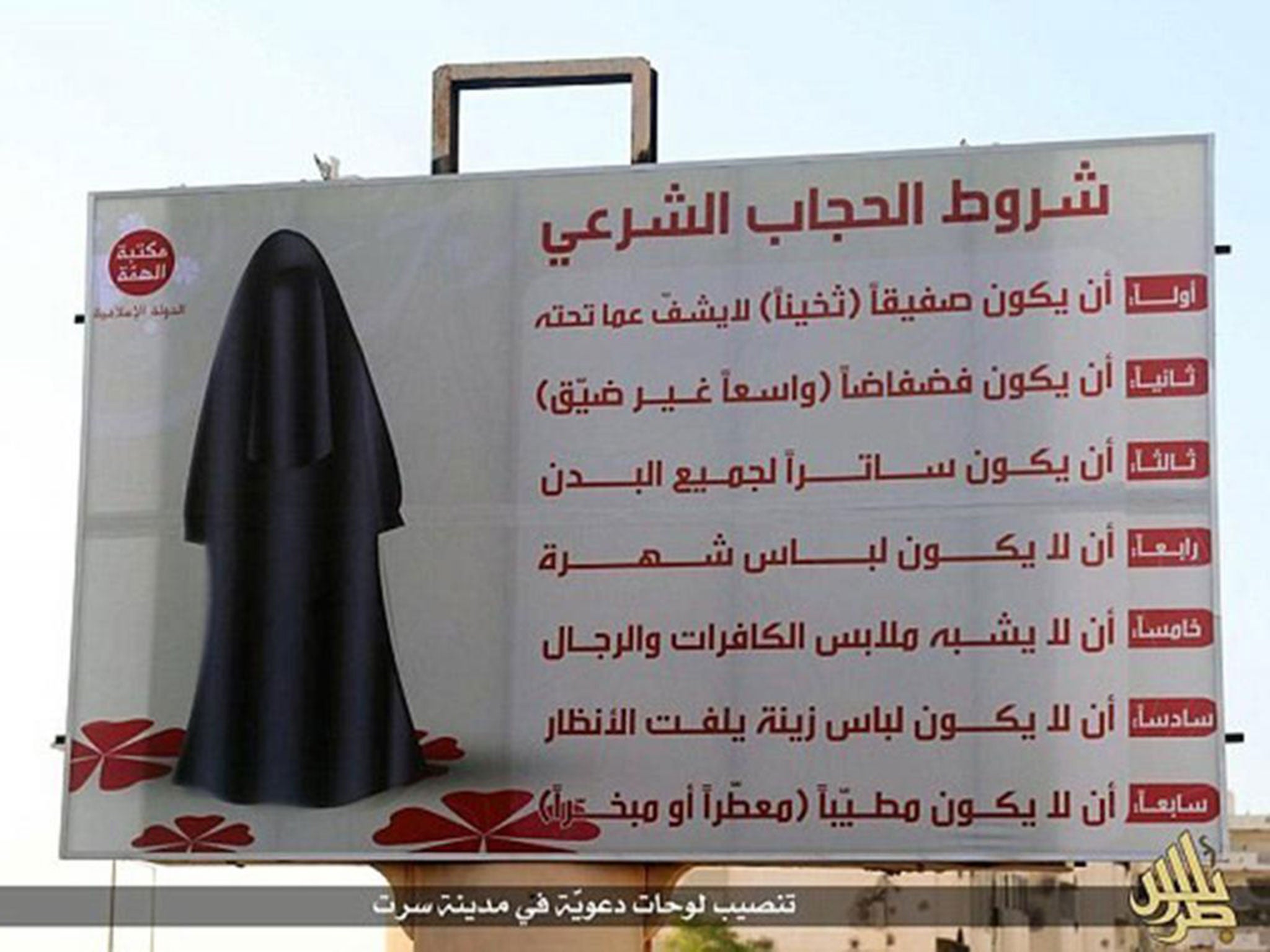Rights of women in Libya severely restricted under oppressive Isis regime
The militant group has enforced its severe interpretation of Sharia law on the women of a Sirte since seizing control last year, according to Human Rights Watch

A report into the biggest Isis stronghold outside of Syria and Iraq has documented the everyday effects on the lives of women under the militant Islamist regime.
Human Rights Watch (HRW) observed developments in the Mediterranean port town of Sirte, in Libya, and found the self-proclaimed Islamic State is enforcing a severe interpretation of Sharia law on its inhabitants.
Not satisfied with simply demanding that all women wear a black, unadorned abaya (robe) and niqqab (headdress), in August last year a decree was issued containing seven more rules about the garments.
The diktat stated the garments must be think, loose and cover the whole body, and they must not be extravagant, decorative, scented or resembling the clothing of female infidels and men.
Should Isis morality police find a woman or girl breaking the strict dress code their male relatives will be fined and flogged, often on the spot, residents say.
According to the report, a 28-year-old woman, referred to only as 'Huda' said: “We had to cover everything including our faces. If you show your hands, they fine your husband 75 dinars (£37.50).
“If you show your feet, it’s 150 dinars (£75). The second time it happens they give the husband a warning. The third time it happens, they whip him.”
Huda fled from her home in Sirte in March this year.
Another women, known only as 'Ahlam', told HRW she was travelling in a car with her husband when an Isis enforcer stopped them. “He made me raise my hands and when he saw they were bare he shouted at my husband to make me put on my gloves,” she said.
Both women said mothers were covering their daughters when they were as young as eight for fear of their husbands being fined or flogged.
Another displaced resident, simply called 'Omar', told the human rights NGO that you had to go to specific stores controlled by Isis to buy underwear.
Read more
Shops are banned from selling frilly underwear, ornate accessories and perfume, and one resident told HRW the militant extremists had even banned the use of mannequins to display women's clothing.
HRW’s investigation – called “We feel we are cursed” – also found women and girls as young as 10 are forbidden to leave home without a male relative - or mahram.
A Charter for the City ordered women to spend their time “settling in the home … refraining from leaving unless necessary”, which, along with other aspects of the charter is widely policed.
Huda told HRW: “We had to have a male escort even to go shopping. We had no choice. Women in Sirte cannot object.”
Join our commenting forum
Join thought-provoking conversations, follow other Independent readers and see their replies
Comments
Bookmark popover
Removed from bookmarks